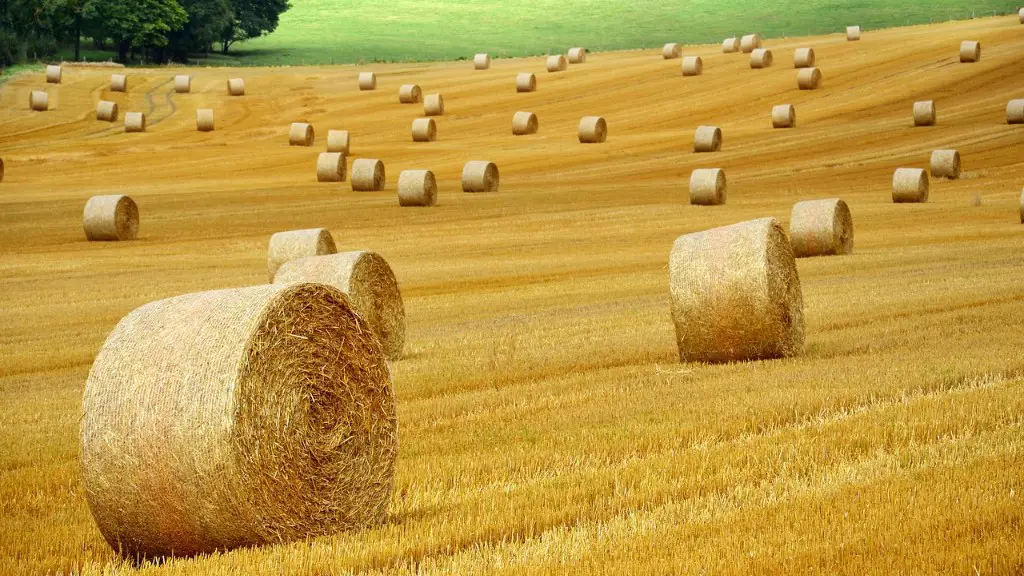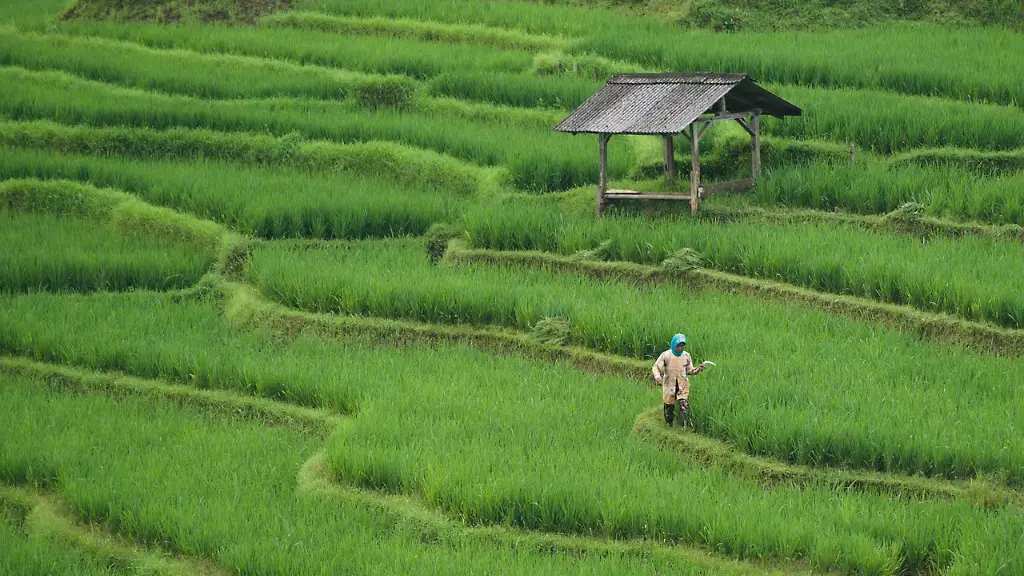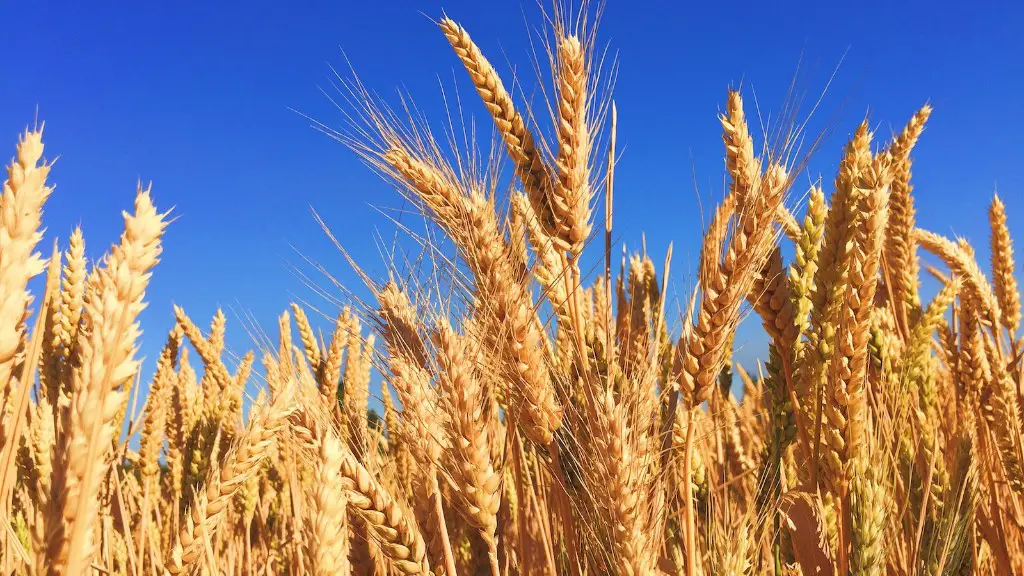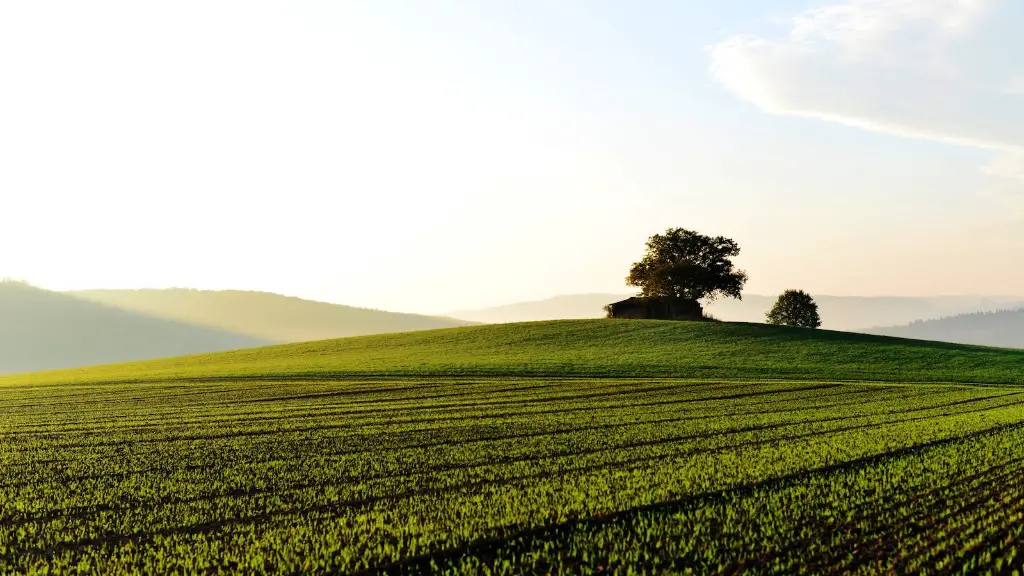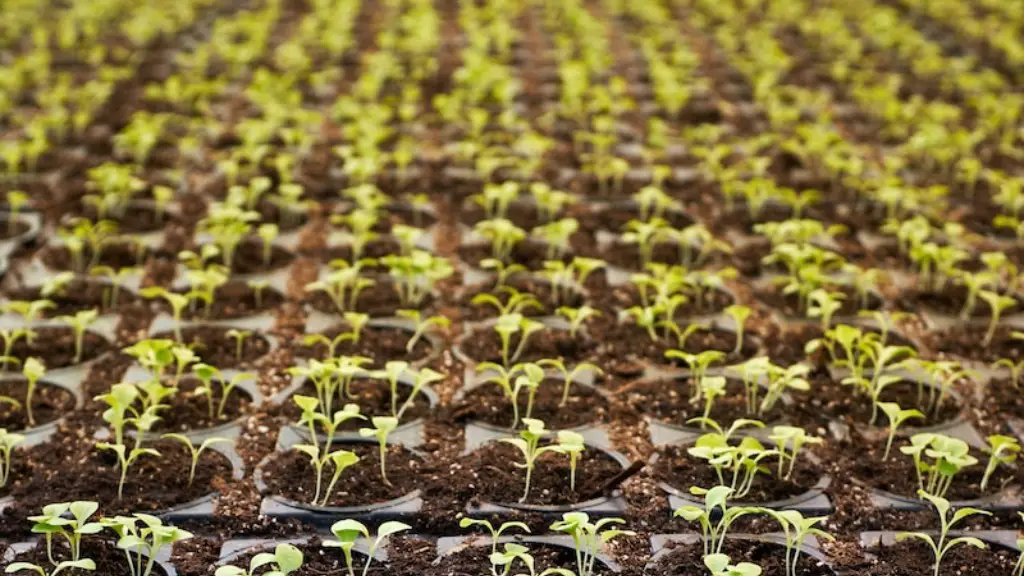Agricultural economics is the study of economic principles and practices related to the production, distribution, and consumption of agricultural goods and services. It encompasses aspects of microeconomics, macroeconomics, and international trade. Agricultural economics also includes environmental and social issues such as food security, sustainable development, and rural poverty alleviation.
Economics of agriculture is the study of economic factors associated with farming and ranching. It encompasses a wide range of topics, from farm and ranch management to the economic impact of government policies on agriculture.
What is the meaning of agricultural economics?
Agricultural economics is the study of how societies use available resources to meet the needs of people. Agriculture represents the single largest use of the earth’s resources—a major driving force in the world’s economy. Agricultural economics plays a critical role in understanding and addressing the challenges facing the agricultural sector. It is important to understand the economic principles that underlie agricultural production and policy, as well as the economic impact of agriculture on the broader economy.
The Agriculture and Food Systems major at XYZ University will provide you with a strong foundation in the production, distribution and consumption of food and agricultural goods and services. You will develop strong problem-solving and analytical skills, and explore topics related to agriculture policy, international trade and other pressing issues in agriculture. This major will prepare you for a career in the agriculture or food industry, or for further study in this field.
What does an agriculture economist do
Agricultural economists play a vital role in agribusiness firms by using modern analytical management tools to make profitable decisions. They conduct financial analysis, develop marketing plans, and set up optimal production schedules in US and international food and fiber firms. Their deep understanding of the agricultural sector helps them contribute effectively to the success of their firm.
The agricultural economics major provides students with a unique skillset that can lead to hundreds of different opportunities. Agricultural majors become experts in rural development and managing natural resources. They think globally, and know that food is now an international business. With this type of degree, graduates can pursue careers in government, NGO’s, the private sector, and more.
What is an example of agricultural economics?
Agriculture is a vital sector of the economy, and its development can have a significant impact on economic growth. For example, if agricultural productivity increases, it can lead to lower food prices, which can benefit consumers and increase demand for other goods and services. In addition, agricultural development can create new jobs and industries, and spur economic growth.
Agricultural economics is a field of economics that applies economic principles to agricultural markets, businesses, and government policy. Agricultural economics research can be divided into two main areas: microeconomics and macroeconomics.
Microeconomic research in agricultural economics focuses on issues such as farm management, farm households, agribusiness, and agricultural policy. Macroeconomic research in agricultural economics focuses on issues such as agricultural commodity markets, international trade in agriculture, and the economic impact of agricultural policy.
What job can I get with Agricultural Economics?
There are a variety of agricultural economics jobs available in Nigeria. Some examples include working as an agricultural scientist, agribusiness coordinator, database officer, or technical sales representative. Each position offers different responsibilities and allows individuals to use their skillset to contribute to the agricultural industry in Nigeria.
An agribusiness consultant is someone who provides advice and guidance to businesses involved in the agriculture industry. They may work with farmers, ranchers, and other food producers to help them improve their operations and make more profit. They may also work with businesses that sell or use agricultural products, such as food processors or retailers.
An agricultural loan officer is someone who helps farmers and ranchers get loans from banks or other financial institutions. They may work with the farmers to determine how much money they need and what kind of collateral they can offer. They may also help the farmers fill out the paperwork and negotiate with the lender.
An agricultural appraiser is someone who evaluates the value of farmland, equipment, and buildings used for farming. They may work for banks, insurance companies, or government agencies.
An agricultural commodities trader is someone who buys and sells agricultural products, such as wheat, corn, or livestock. They may work for a trading company or be self-employed.
An agriculture development officer is someone who works for a government agency or non-profit organization and helps farmers and ranchers develop their operations. They may provide training and technical assistance, help farmers get loans or grants, and promote agricultural products.
A research agricultural economist
Why do people study Agricultural Economics
A Agricultural Economics degree provides students with an opportunity to work in agriculturally-related industries and offers numerous opportunities for growth and career advancement, both domestically and internationally.
The median salary for an Agriculture Economist job in the United States is $75,477 per year. The salary range for this job is from $67,223 to $83,731 per year.
Is there Math in agricultural economics?
Agricultural economics is a field of economics that deals with the allocation of scarce resources in the production and consumption of goods and services in the agricultural sector.
The basic math techniques that are crucial for a proper understanding of agricultural economics include linear programming, game theory, and statistical analysis. These techniques help economists identify and analyze the relationships between different factors that affect agricultural production and consumption.
In order to effectively perform economic analysis, one must have a variety of skills including analytical, communication, critical thinking, mathematical, statistical, and writing skills. Furthermore, it is important to be detail-oriented in order to accurately examine economic data. With these skills and attributes, one can accurately assess economic conditions and develop solutions to problems.
What is the highest paying job with an economics degree
To advance in the field of finance, individuals will need an MBA. The median annual wage for personal financial advisors was $89,330 in 2020, while the median annual wage for financial managers was $134,180. Financial analysts had a median annual wage of $83,660, while operations research analysts and market research analysts had median annual wages of $84,810 and $63,790, respectively. Actuaries had a median annual wage of $102,880.
Earning back what they paid for in college will not take too long since economist jobs, on average, have a salary of $105,630 per year (US Bureau of Labor Statistics, 2022). This is a great career choice for those who want to make a positive impact on the world and earn a good living.
What is the best major in agriculture?
The best agricultural degrees at the baccalaureate level include agroecology, food systems, environmental sciences/studies, biological sciences, international development, animal science, nutrition & food sciences, and dietetics, nutrition, and food sciences, among others. Each of these degree programs offers students a unique set of skills and knowledge that can be applied to a career in agriculture.
The field of agricultural economics covers a wide range of topics related to the production, consumption, and trade of agricultural products and resources. The four major areas of study within agricultural economics are production economics, consumer theory and behavior, agricultural marketing, and resource economics.
Production economics focuses on the factors that affect the supply of agricultural goods and services, such as land, labor, and capital. Additionally, production economists study how farmers make decisions about what to produce and how to produce it.
Consumer theory and behavior examine how consumers make decisions about what to purchase and how these decisions impact the demand for agricultural goods and services. Agricultural marketing research investigates the procedures and institutions involved in the marketing of agricultural products, including price discovery, transportation, and storage.
Resource economics encompasses a variety of topics related to the efficient use of natural resources in agriculture, such as water, soil, and energy. Additionally, resource economists study the impact of environmental policies on agriculture and the economy as a whole.
What are the 4 types of agriculture
There are four main branches of agriculture, each with their own focus and area of expertise. Livestock production deals with the raising and care of animals for meat, milk, or other products. Crop production focuses on the cultivation of plants for food, fuel, or other purposes. Agricultural economics deals with the economic aspects of farming, including market analysis and farm management. Agricultural engineering deals with the design and implementation of farmers to help them improve yields, reduce costs, and automate processes.
The Bachelor of Agriculture (B Agric) degree is a 2, 4, or 5-year academic programme that leads to a professional qualification in agriculture. The programme is designed to provide students with the knowledge and skills necessary to pursue a career in agriculture. The first year of the programme is a qualifying year, during which students take introductory courses in agriculture.
Final Words
While there are many different ways to define agricultural economics, at its core, agricultural economics is the study of how economic principles and policies affect the agricultural sector and the decisions made by those within it. This includes everything from the production and consumption of food to the marketing and pricing of agricultural commodities.
Agricultural economics is the study of how different economic factors affect agriculture. It can encompass everything from the prices of agricultural products to the financial health of farmers. It is a complex and ever-changing field that is essential to our understanding of the food system.
